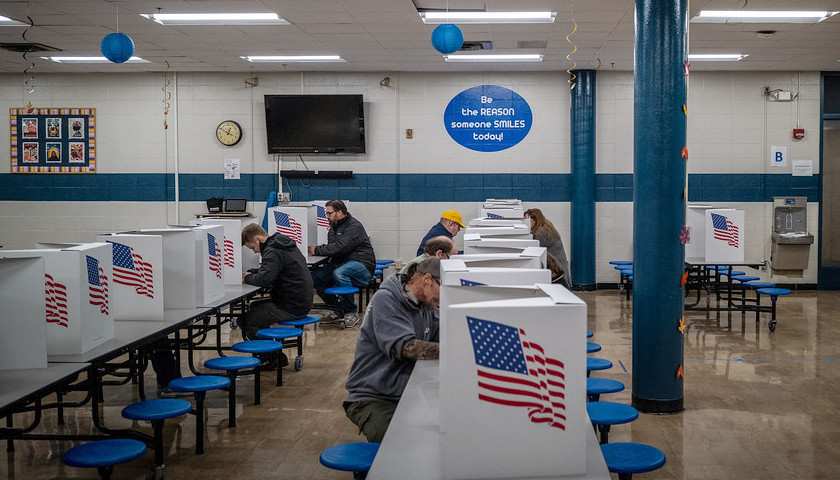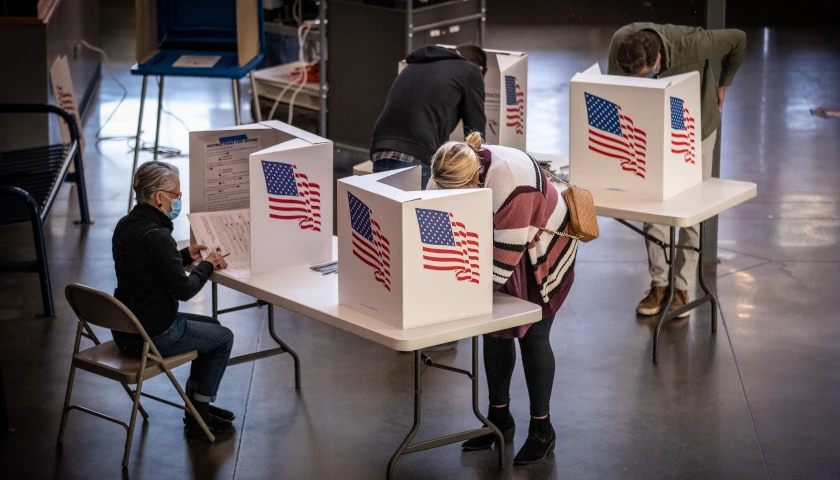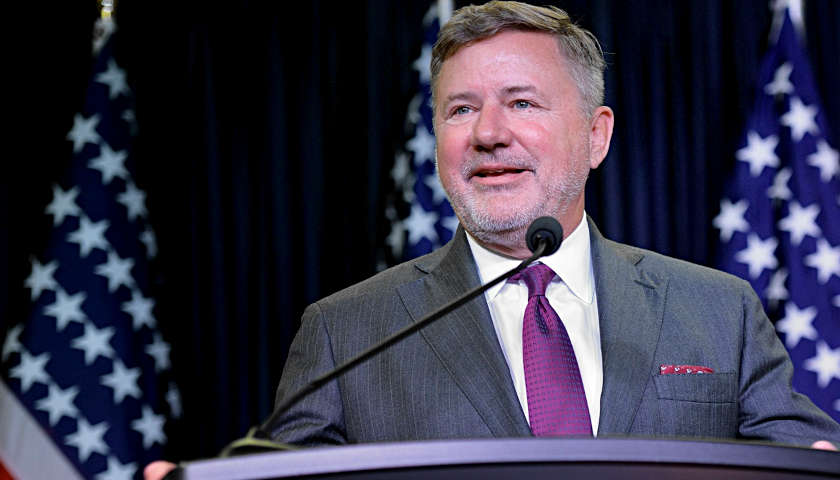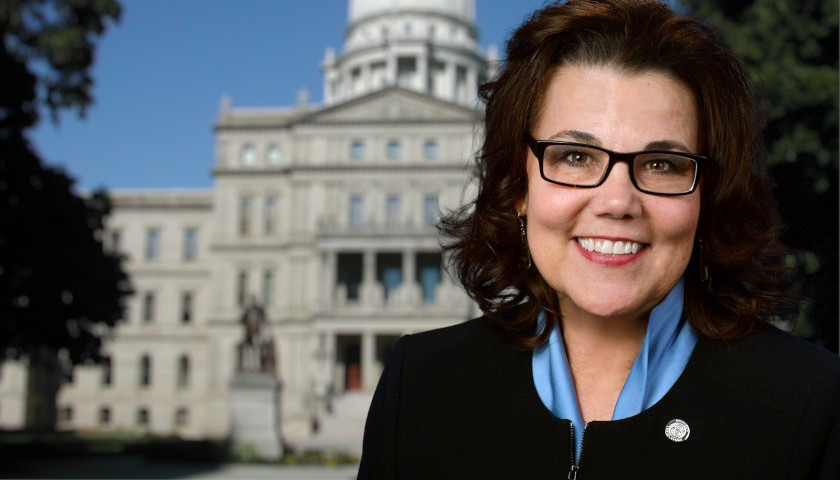by Natalia Mittelstadt
Election integrity advocates in Michigan warned about bills in the state House that, if passed, would make the state part of the National Popular Vote Interstate Compact and assign its electoral votes to whichever presidential candidate wins the national popular vote (NPV). The bills will no longer be considered this week, but could be brought up later.
Two Michigan state House bills that would change how electoral votes are allocated were put on the legislative agenda this week for consideration. Election integrity proponents in the state warned about the impact of the legislation, arguing that it would reduce the importance of the state’s votes for president. After their efforts to warn legislators, the bills will not be brought up again this week.
In the Michigan state House, Democrats currently have a two-seat majority. However, following the general election earlier this month, Republicans will have a six-seat majority when the new legislative session begins next year.
During the lame-duck session that ends next month, state House bills 4156 and 4440 were brought up for consideration. The first bill would enter the compact, while the second would explain how the state would change the allocation of its electoral votes.
Political parties in each state nominate people to be the electors for that state prior to Election Day. In 48 states, including Michigan, electors for the Electoral College are chosen by a “winner-take-all” system, meaning that whichever political candidate receives the most votes statewide gets all of the state’s electors.
However, the two House bills would make Michigan’s electoral votes go to the presidential candidate who wins the NPV.
Seventeen states and Washington, D.C., have become members of the National Popular Vote Interstate Compact, resulting in 209 total electoral votes. If Michigan and its 15 electoral votes join the compact, then the total would be 224 electoral votes.
The compact is currently only 61 electoral votes away from taking effect.
According to the compact, the NPV bill will take effect when enacted into law by states possessing 270 electoral votes — a majority of the total 538 electoral votes.
Supporters of the compact say they don’t want to abolish the Electoral College, just change how electors are picked – by the NPV, not by whether the Democrat or Republican presidential nominee wins states’ popular votes.
“The National Popular Vote Interstate Compact will guarantee the presidency to the candidate who receives the most popular votes across all 50 states and the District of Columbia,” says the group, National Popular Vote, which makes clear the compact also “preserves the Electoral College.”
Patrice Johnson, chair of Pure Integrity Michigan Elections, has been warning about the two state House bills.
Johnson told Just the News on Wednesday, “They pulled [National Popular Vote] from the agenda for this week.”
Michigan State Rep. Rachelle Smit (R) told Johnson that the NPV legislation “has been pulled from [the] agenda for this week. I’m still not certain it won’t pop back up.”
Michigan State Rep. Steve Carra (R) also told Johnson that the kibosh has been put on the NPV legislation “for the week at least.”
Smit’s office told Just the News on Wednesday regarding the NPV bills, “It is our understanding that those bills have been taken off for now. We are not certain as to why and [it] is unclear whether or not these will return in December’s agenda.”
Carra’s office didn’t immediately respond to a request for comment on Wednesday.
“Thanks to the grassroots rising up and swarming legislators with phone calls and emails,” Johnson said. “[Michigan Fair Elections] supporters were energized and on their phones.
“Pure Integrity Michigan Elections is pleased to have played a role in this amazing push back on the assault of our federalist system. We are also grateful to [Association of Mature American Citizens]. As of yesterday at 3 PM, 1700 AMAC members had sent messages to their legislators.”
Johnson said Tuesday that the NPV is like “two wolves and a sheep voting on what’s for dinner,” urging those who oppose the legislation to contact their representatives. “Say no to National Popular Vote,” she added. If NPV legislation is enacted, Johnson said, “Michigan would become, literally, fly-over country for federal politicians. Goodbye swing state status. Goodbye candidate visits.”
Smit had also warned about the NPV bills.
“If House Bills 4156 and 4440 are enacted in Michigan and adopted by enough other states, this effort will disenfranchise Michigan voters by forcing electoral votes to whichever presidential candidate earns the most votes nationally, not the most votes in the state of Michigan,” Smit said Tuesday.
“Our Founding Fathers created the Electoral College to ensure the interests of all states and regions are considered when electing the president – not just big cities and population centers like New York and California,” she added.
“Our largest cities in Michigan are much smaller than those in other states. The National Popular Vote Interstate Compact threatens to upend this delicate balance and throw presidential elections into disarray.”
“The National Popular Vote movement is bad for Michigan and bad for America,” Smit continued. “It’s unfair to voters outside of large population centers, bucks the Constitution, and serves to further erode confidence in our elections. Michigan legislators should soundly reject this misguided proposal.”
Michigan State House Republican leader Matt Hall posted on X on Tuesday regarding the issues with NPV.
“The Democrat ‘national popular vote’ plan will weaken Michigan’s voice and hand our presidential elections to liberal strongholds like California and New York,” Hall wrote.
Despite the strictures of the U.S. Constitution, the movement was largely engendered after Hillary Clinton won the popular vote but lost the Electoral College count in 2016, and Democrats tried everything they could to convince the public — and sway the electors — that “she got more votes” was sufficient to award her the presidency.
“President Trump won the popular vote, but Democrats are convinced they can stack the deck and win in the future by taking our state out of the process. That’s not right. Instead of taking away Michiganders’ voices, Democrats should listen to the people and work with Republicans to move our state forward.”
– – –
Natalia Mittelstadt is a reporter at Just the News.
Photo “Election Day” by Phil Roeder CC2.0.






The National Popular Vote Interstate Compact -making certain your vote doesn’t count.